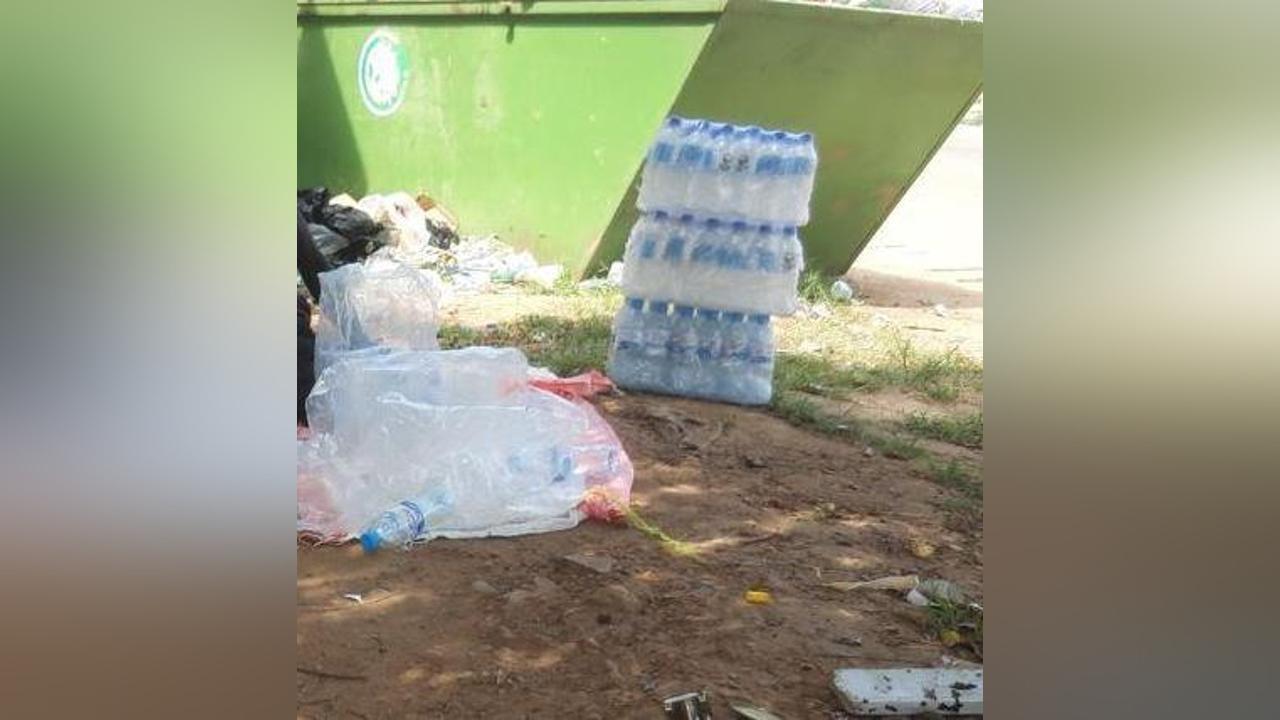Africa-Press – South-Sudan. South Sudan is planning a formidable campaign for solid waste management that will control the use and disposal of plastic waste.
Speaking during the commemoration of International World Environment Day at Juba International Airport, the minister of environment, Josephine Napwon, revealed that Juba would consider a two-year ban on some plastics that make the city chock full of garbage because of irresponsible disposal.
“Juba City is littered with both plastic bottles and plastic bags. Simply put, the city is very dirty and requires urgent intervention and action now rather than later,” the minister said.
“The ministry of environment and forestry is considering declaring a two-year moratorium on the importation of plastic bottles and the production of 500mm and 1 litre bottles, as well as glass bottles”.
The ministry says if the ban is declared, water companies will only produce 10 and 20 litters and it will only be lifted when there is a recycling plant established in the country. “They currently have plans and initiatives for establishing these plans and hope they will materialise soon”. She added.
But as policy formulators and overseers like Napwon make steps to weed out the plastic waste, there is a looming dilemma that surrounds the management of the plastic waste as it creates a source of employment for low-income earners.
Andrew Ugalla, 26, is a youthful and adult teacher at Juba’s Don Bosco vocational centre POC who has found a lucrative craft in the plastic waste. Ugalla has ventured into the construction of houses using plastic bottles with the hope of securing the environment.
He started the construction with plastic bottles, and he says he has converted over a million used plastic bottles into proper use. Some of these may have ended up as waste in the country’s sole water source, the Nile.
“I used to tell my students to bring two bottles a day as school fees until I accumulated enough plastics for construction,” he recalled.
He says that from this, he built more than 10 buildings out of plastic, ranging from houses, kitchens, school latrines, and rest places for a school.
According to Ugalla, the solution to pollution should not end with banning the importation of plastic materials but with supporting ventures like his.
“Much as I welcome the ban, the government should instead help my initiative so that we can be able to provide training grounds for the children so they can learn that plastic bottles are very useful,” he said.
“The government should fund us with cement and the elderly women who collect the plastics, and if I pay them, they can collect as much as they can.”
Although the government intends to end the importation of such materials, officials like the undersecretary for the ministry of environment and forestry, Joseph Africano, argue that the process should encompass the views of the water companies. Lest it affect the sector.
Environmentalists like Philip Dot welcome the idea, hailing it as the antidote to securing the environment.
“Plastic pollution has become a scourge on earth and is one of the longest-lasting forms of pollution that destroys all ecosystems indiscriminately,” Dot says.
He argued that most plastics are single-use containers, hence their pile-up rate is higher and has far-reaching negative impacts on the environment.
“They don’t degrade, or will do so in over 400 years, at the increasing rate of pollution that the planet does not have.”
He warns that the plastic bottles would break down with time into smaller particles known as microplastics, which are now found in the deepest parts of the ocean and are now finding their way into fish that humans consume.
“Microplastics, due to their size, can’t be eliminated from the environment, but banning plastic bottles allows us to solve the problem before it gets to that point,” he advised.
Alfred Angasi, a primary school teacher who is an aspiring environmental conservation crusader, argued that it is high time the community gets involved in preventing pollution.
He says that as educators, they have prioritised the integration of core environmental protection skills into the academic curriculum.
“During assemblies, we tell the pupils to carry on environmental skills like not littering anyhow but finding appropriate places to dispose of any garbage.”
Companies that produce water in Juba pointed out challenges in production that depend on factors in the market.
Chris Olupot, a manager at Blue Wave, which is a water company in Juba, says he produces 120,000 bottles a day during the rainy season and 240,000 bottles in the dry season.
For Olupot to win the war against pollution, there is a need to sensitise the masses on proper disposal of waste rather than banking on a total ban. He said the water companies sometimes run out of stock and are forced to import virgin bottles, which are considered clean and presentable.
Rahanu, a consultant with East Africa Go Green Company, which signed a garbage collection deal with the Juba City Council, advocated for strict laws that prohibit the manufacturers from using new bottles.
“The government should tell the companies to have 40 percent recycled and 60 percent virgin materials in order to reduce the number of plastic bottles in the city”.
Source: The City Review South Sudan
For More News And Analysis About South-Sudan Follow Africa-Press






